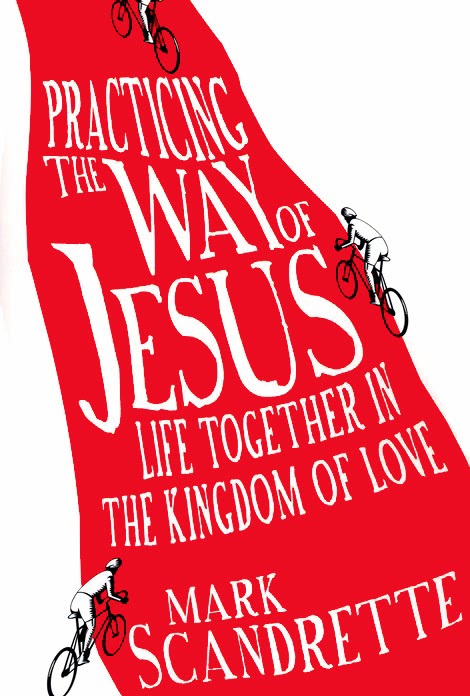A spiritual battle has begun in America, but it’s not being
fought in the way or over issues that many evangelicals are familiar with.
It’s not about traditional values. It’s not about culture wars. And it’s emphatically not about restoring America to a place of exceptionalism, making America first, or making America great “again.” In fact, all of that seems silly, boring, and idolatrous when considering this spiritual battle.
This is a battle for the heart of the Gospel, and it what it
means to follow Jesus in 2017 whilst living in the United States of
America. It’s being fought over
issues such as gun violence, immigration, sexuality, sexual abuse, racism,
classism, the environment, to name a few.
It’s not about abortion only, and that seems strange, foreign
even, to evangelicals of a certain stripe and certain generation. It’s not about family values and that
seems odd, unfamiliar. It’s not
about Christian worldviews and apologetics, and that further confounds many
evangelicals brought up in the good old days of the Religious Right, Case for
Christ, Moral Majority, and Focus on the Family.
While some of those things maintain a level of importance in
this spiritual battle, they are not at the forefront. At the forefront are questions of what it means to truly
love our neighbor – whether our neighbor is Muslim, Latino, Black, Asian, or
white; what it means to follow Jesus who said, “Love your enemies,” and
“Blessed are the peacemakers”; what it means to be a citizen of the Kingdom of
Heaven first, foremost, most importantly, most distinctly, definitively, before
identifying as a citizen of America or other geo-political entity; what it
means to walk humbly, doing justice, loving kindness/mercy; what it means that
God is making all things new, not all new things, and to live as if you expect
that to happen.
At the heart of this battle there is the person of Jesus,
the Christ. Jesus is at the heart
of the battle because some who don the name “Christian” say Donald Trump is our
dream president. Jesus is at the
heart of the battle because some have said it’s our God-given right to possess
firearms designed to kill at high rates.
Jesus is at the heart because some have said it doesn’t matter what we
do with this world, it’s all going to burn up in the end anyway. Jesus is at the heart of the battle
because some claim sexuality has been decided, centuries ago, and there is no
grey, only black and white, male and female, that’s it. Jesus is at the heart of the battle
because some say upholding the laws of the land are more important than the
command to love our neighbor in the way the Good Samaritan exhibited radical,
costly neighborliness. Jesus is at
the heart of the battle because some say people of other faith traditions
threaten our ability to freely worship and, ultimately, desire to exterminate
our faith altogether. Jesus is at
the heart of the battle because there is disagreement about Jesus and his
teachings.
There are others who say no elected official will ever be
our dream president because no elected official can ever replace our one and
only true allegiance to King Jesus.
There are others who say that when Jesus commanded his disciple to put
his sword away, he once and for all commanded all Christians to lay down their
weapons. There are others who say
that this world was given to us to steward and care for, and as ‘creation
groans’ we will be held responsible for what we do to the earth. There are others who say sexuality is
broken, for ALL people, and so the best way forward is acceptance,
understanding, and compassion.
There are others who say the laws of the land are secondary at best
because our primary call is to love our neighbor, love the foreigner, for we
were once foreigners. There are
others who say other faith traditions are not our enemies, but may be the sheep
of the other fold Jesus referred to, or seekers of the cosmic Christ in their
own understanding and tradition.
There are others who say that Jesus’ teachings are radical, adventurous,
push the boundaries, and we should do the same.
There is a spiritual battle. It’s not the battle you might imagine. Maybe you’ve been missing the
nuance. See, the lines are not
clearly drawn. It’s not about
liberal and conservative, that’s boring.
It’s not about being traditional or progressive as I don’t know whether
anyone really knows what any of these terms really mean anymore. In other words, they only mean what I
want it to mean when I’m trying to distance myself in the battle, draw lines in
the battle, explain why I am right and you are wrong in the battle.
A generation is rising up observing the battle – the lines
that have been drawn – and many are walking away, disengaging, choosing not to
participate. They aren’t walking
away from faith, spirituality, the need for a Source, a Creator, a Spirit that
makes life more meaningful, more purposeful, more beautiful. No, they’re walking away from the
battle that is, at its heart, a battle between people who say they follow the
same God revealed in the person of Jesus Christ but refuse to come to the Table,
yes the Table, and move forward.
We need to get our act together, Church, fam. The Spirit is
moving. We need to confess our complicity in systems that hurt people created
in the image of God. We need to repent. We need to listen. We need to get do
justice, love kindness, and walk humbly with our God.
-->





